

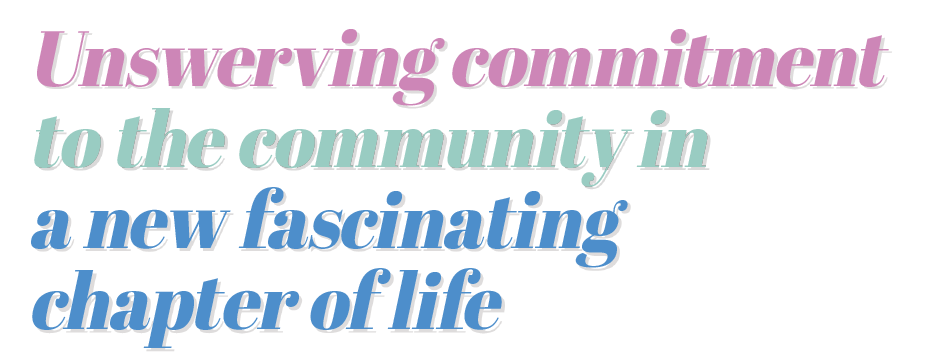
Civil Service Newsletter Editorial Board
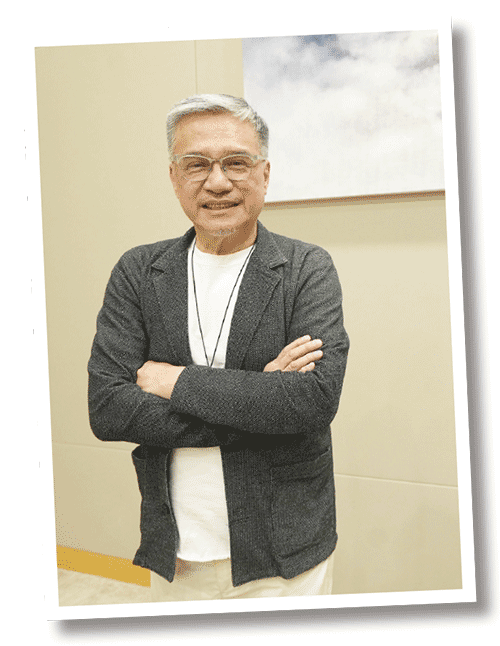
Mr Yeung worked in the Environmental Protection Department (EPD) as Principal Environmental Protection Officer with specific responsibility for noise management before retirement. During his years of service, he had engaged in extensive studies on relevant areas and attended different international conferences. In 2009, he was tasked with the project of “Innovative Noise Mitigation Designs and Measures”, which was launched by EPD in collaboration with the Buildings Department and the Housing Department, and took pains to develop user-friendly facilities for the benefit of the public in a people-oriented approach. Under the project, the newly designed “acoustic windows” and “acoustic balconies” have been adopted in many public housing developments.
“Acoustic windows” adopts a double glazing alike design but with the two window layers in staggering position making an opening for ventilation. With absorption in place, it reduces both the direct and reflected noise. Mr Yeung remarked that the design might look simple, but the process was anything but easy. He said, “As Innovative Noise Mitigation Designs and Measures are a brand new concept, we have to prove, with scientific data, the effectiveness of the measures and the design proposals in reducing noise, and to ensure compliance with legislative requirements. Meanwhile, it is also important to introduce the proposals to the industry.”
Mr Yeung recalled that it took eight whole years for the project to progress from the stage of conceptual design to actual implementation. What is most unforgettable to him is his experience of creating, together with his teammates, a full-scale model of flat in San Po Kong for conducting on-site tests to verify the effectiveness of “acoustic windows”. Thanks to the relentless efforts of the inter-departmental team, the project was put into practice and “acoustic windows” were first adopted at King Tai Court in San Po Kong, which is the first Green Form Subsidised Home Ownership Scheme court completed in 2017.
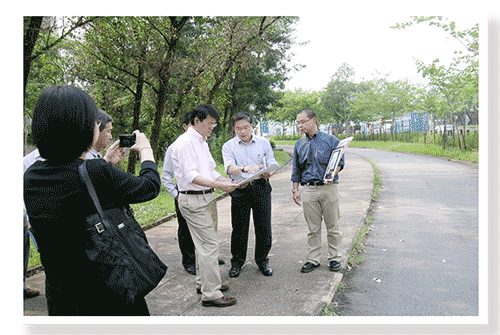
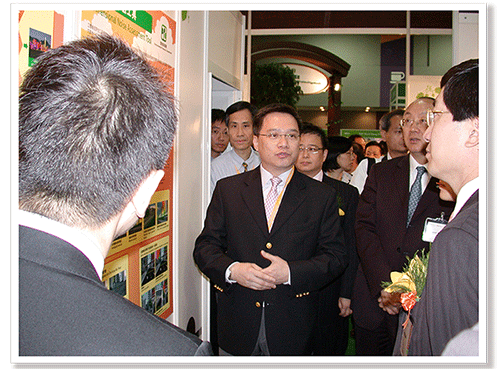
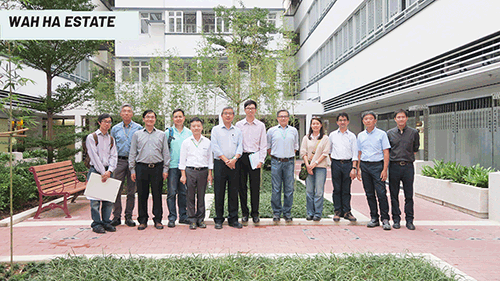
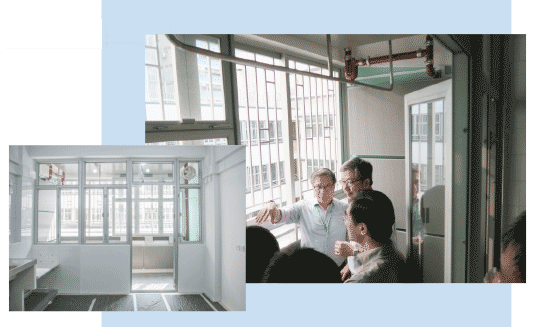
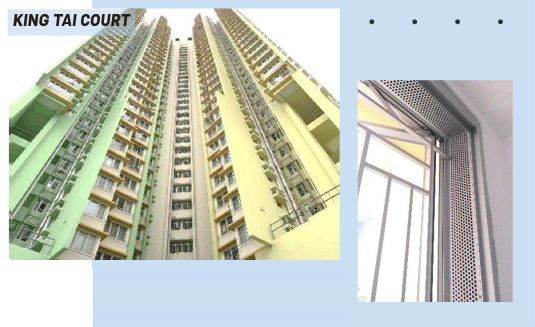
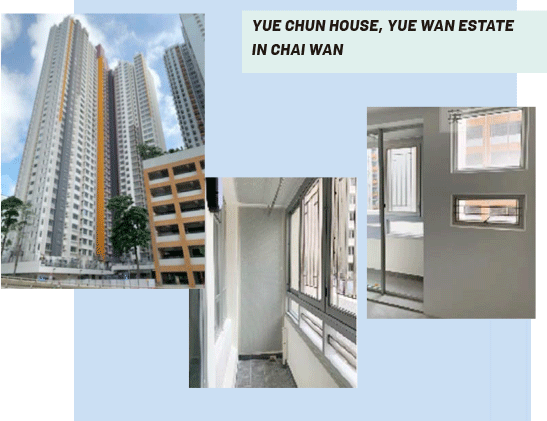
Mr Yeung takes great delight in talking about the part he played in this significant project. “This project is a good example of inter-departmental co-operation, which fully demonstrates the ability of participating departments to rise to challenges. The relevant measures are not only beneficial to the public, but also conducive to the development of Hong Kong into a comfortable, tranquil and livable city. I am much honoured and gratified to have taken part in the project,” said Mr Yeung.
Mr Yeung retired in early 2017, and after a break of six months returned to work for EPD on post-retirement service contract terms until 2021, during which he was dedicated to enhancing the application of “acoustic windows” and “acoustic balconies”. His work included formulation of practical guidelines, collection of data on usage, etc. In his workplace, he was always generous in sharing his insights and experience with his colleagues. Mr Yeung is of the view that one does not have to stop working altogether after retirement. As in his case, he took up his job again and worked as wholeheartedly as he had previously done. To adapt to retirement life step by step, he allowed himself to slow down his hectic schedule and gradually withdraw from the workforce, while seeking the direction for a new phase of his life.
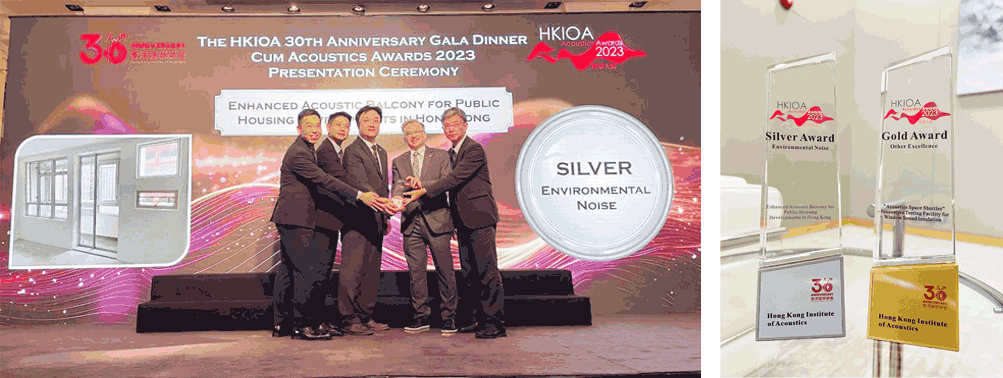
Mr Yeung had been doing volunteer work in his spare time, and after retirement he began to devote more time and energy to volunteer service. “The fundamental service ethos of volunteering is to render support to those in need from our heart, and we join hands to serve them with selfless devotion, regardless of who we are or what status and position we hold in society.” Mr Yeung has reached out to various communities through volunteering. Out of his religious conviction that all are born equal, he has focused his efforts on providing assistance for refugees and asylum seekers in Hong Kong. “They have left their homeland and ended up in a place which is completely unfamiliar to them. One can imagine how tough their challenges in life are. They are, after all, members of our community and should have our concern, regardless of their identity and social status.”
Mr Yeung visits the accommodation of these service targets together with other volunteers to learn about the way they live and the problems they face in Hong Kong. He listens to them with an attentive ear. He is particularly concerned about the difficulties encountered by the children of refugees and torture claimants during their study in Hong Kong, specifically their obstacles in learning Chinese. In view of this, Mr Yeung organises online Chinese tutorial classes for these children jointly with other volunteers and groups. Different lessons, each lasting an hour, are arranged according to their level of study every Saturday.
In addition, the volunteer team has arranged extra-curricular activities for these students during holidays, such as booth games with the hire of school assembly halls, to broaden their social life. “Around 50 to 60 volunteers are usually involved in organising this kind of activities. Sometimes we also enlist the help of magicians and balloon artists, and furthermore we approach schools to engage their students as volunteers, and the response has so far been overwhelming. Both the volunteers and service recipients were elated by all the activities that brought them so much fun and laughter.” The next project that Mr Yeung has in mind is “Making Friends through Food”, hoping that through gatherings with the refugee families to savour the traditional food of their hometown, his friends and other groups will better understand the traditional cultures and customs of the refugees.
As enthusiasts in volunteer work, Mr Yeung and his wife often organise a host of activities together. The couple is also passionate about music, in particular hymns. In 2021, they established the “Hong Kong Hymos Festival Society”, a non-profit organisation, with like-minded friends in the hope of fostering a harmonious atmosphere in the community through music.
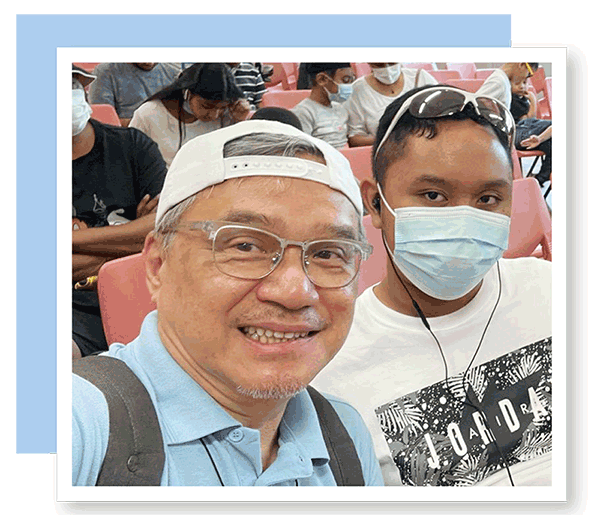
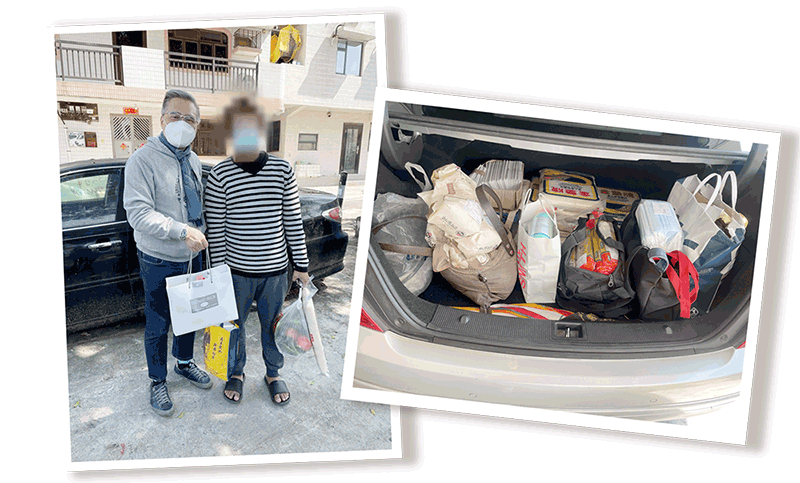
Mr Yeung has become so “addicted”, in his words, to volunteering that he often comes up with plenty of ideas and suggestions about volunteer activities, and has to discuss with his friends to see if his ideas and suggestions will work. “We, as volunteers, experience love in serving people in need. It doesn’t refer to the love we manifest or give when providing services, rather it is the love we experience when we are accepted by the service recipients.”
When Mr Yeung learned of a friend’s intention to take up volunteer work after retirement, his advice to the friend was to get psychologically prepared before starting any volunteer service. The first thing to note when serving as volunteers is to think out of the box to serve others humbly, and with humility work closely together whatever their job status in the past. Mr Yeung also suggested that colleagues should try a wide range of volunteer services to have a clearer idea of who they want to help and then target their service at specific groups.
Mr Yeung admitted that his life after retirement does not turn out quite the way he had envisioned. He had originally expected to have a lot of spare time after retirement, but in reality he has devoted half of his time to volunteer work and the other half to planning of travels and other activities.
Mr Yeung and his wife enjoy travelling around the world. Apart from pilgrimages to trace the origins of their faith, they also go on relaxing wine tours. Last year, they visited Bordeaux, the hub of the wine growing region in France with some good friends on a one-week trip, where they had a most memorable wine-tasting experience touring wineries. He quipped that he still needs to make time for hobbies which he would like to try and pick up books to read for pleasure.
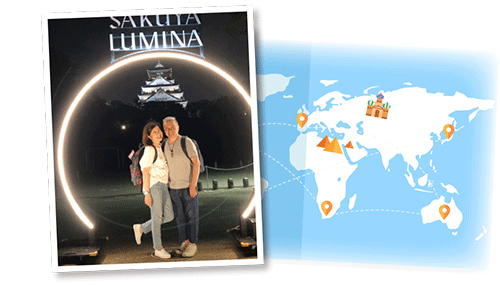
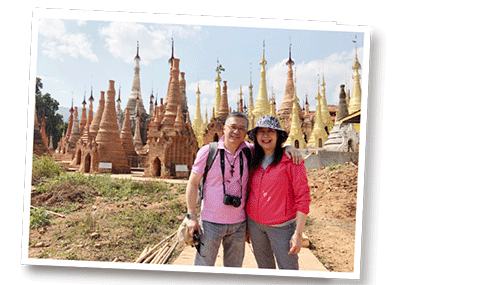
Making meticulous retirement planning for another splendid chapter in life is exactly what Mr Yeung has done. According to him, life is likened to a car: after decades of hard work in the workplace, you should not brake your car all of a sudden when you retire, but have to keep driving slowly in order to maintain the momentum for moving forward and to find a goal for the next phase of your life.
Throughout the interview, Mr Yeung wore a sincere smile indicative of his satisfaction with a life well lived. He lives a meaningful and interesting life after retirement through his caring volunteer service and enjoyable travelling experience. As energetic and vibrant as before, Mr Yeung always enthuses over the volunteer projects undertaken by him. His own actions have made him a living example of the spirit of “being retired but not tired out” and “making contributions to the community”, and he believes that all of us can give full play to our strengths in our respective fields to serve the community. “I think there are three main stages in life: when studying, we should pursue knowledge earnestly; while in the workforce, we should put what we have learnt from school to good use; and after retirement, we should be happy to share all our knowledge and experience with others, thereby furthering our contributions, albeit in a different way, to the community with a different mindset and perspective.”